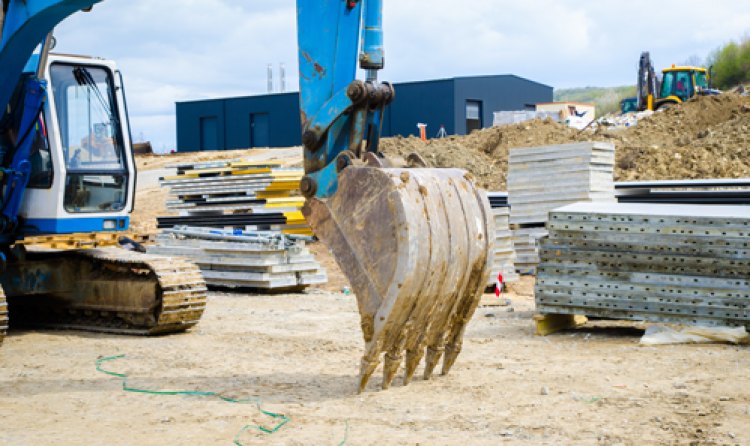
How long does it take to put together a construction budget?
When it’s time to build for your business, it’s natural to want to see the earth being moved as quickly as possible. After all, the sooner that commercial construction project is underway, the sooner you can get back to business. But before even a spade of dirt turns, it’s necessary to get some budgetary ink on paper—because the truth is much of a project’s success hinges upon a comprehensive budget. Knowing that is easy. Creating that budget is more involved. A detailed estimate can take time to put together. The good news is the time investment into the process is highly likely to pay off in the end: you’ll have a clearer picture of what to expect and fewer surprises along the way.
So what goes into putting together a construction budget? Let’s step back for the big picture.
Developing a project estimate
For you to develop your construction budget, you’ll need to engage your construction firm or design-build team. An experienced construction partner can provide varying levels of budget information commensurate with the amount of design information developed at the time. This can mean a high-level cost-per-square-foot budget based on a napkin sketch, a conceptual budget based on schematic design information, a check-in budget during the design development phase or a detailed budget based on full plans & specs. Utilize your contractor as a resource to obtain budget information for your decision-making purposes in how much to invest in your project, and where/how to invest it.
To get there, your team will need your organization’s project requirements and goals. They’ll also want to be able to review any existing documentation and evaluate the planned construction site. Information-gathering needs will differ depending on the scope of the project, but it’s important to be aware the more information that can be pulled together the more accurate the budget will be.
When developing an estimate, it’s also of great help to have an idea of a ballpark figure you have in mind for your budget. While those details may be fuzzy, chances are you have a rough estimate in mind. Sharing that information can help speed the estimation process as it allows contractors or design-build teams to start with a framework for developing their estimate.
On a large commercial construction project, multiple cost estimators may be pulled in so they can offer their perspective on their areas of specialization, according to https://www.smartsheet.com, “Construction Cost Estimating: The Basics and Beyond.” Experienced industry professionals who know how to negotiate with subcontractors may also be consulted.
Project aspects that will be taken into consideration
Several aspects of a typical project may be anticipated in the estimate, including:
- The timeline/project schedule
- Intended construction start date, specifically seasonality impacts on required resources
- Detailed scope of work listing the project size, scope and estimate assumptions
- Material and equipment specifications
- Subcontractor and supplier vendor quotes
- Equipment costs
- Market conditions
- Site-specific conditions and/or constraints
- Project management and supervision requirements
In pulling together an estimate, it goes without saying that having everyone on the same team helps ensure accuracy. When you select a design-build firm for your commercial construction project, you have the peace of mind that comes with knowing all service providers from the project’s beginning to end are working toward the same vision. The result is the virtual elimination of change orders and in-depth expertise and specialization from a single enterprise. The project is streamlined, and as a result, costs are controlled.
Cost estimation and budgeting: a complex endeavor that benefits your construction
Cost estimation is anything but simple, so it’s important to know a well-developed estimate takes time. Estimation techniques vary from company to company, but any reputable contractor will define the particulars of the project and your needs, conduct significant research, plan for hidden costs and potentially unexpected expenses along the way. As a client, it’s essential to realize that the length of time put into developing an estimate gives you a clearer picture of the project ahead and what you can expect to budget. Avoid the temptation to jump at the first estimate that comes in, if you’re bidding the project, as speed of estimate generation is not a significant indicator of the quality of work. You may want to select a team that you trust to develop a good-faith estimate, bypassing the time and energy it takes to put a project out for bid, knowing that the quality you’ll get in return pays for itself.